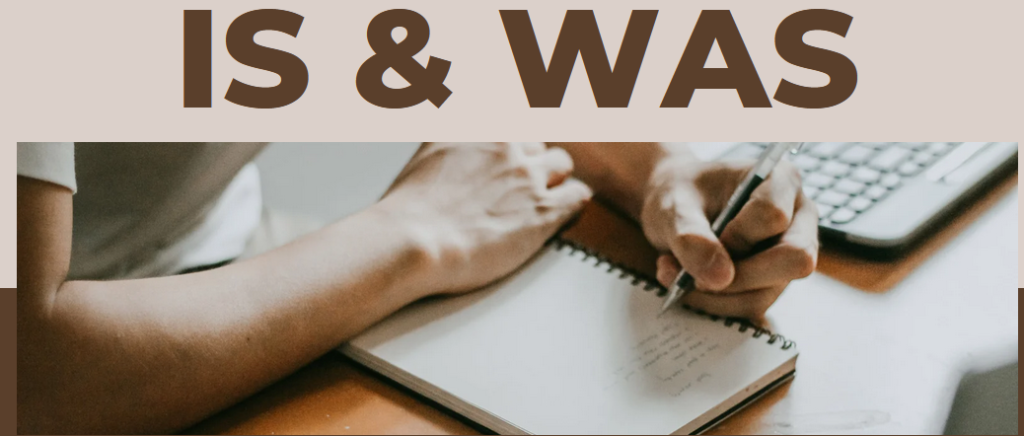Usage of : Is,Was, Are & Were
“Is,” “was,” “are,” और “were” ये चार वर्ब्स अंग्रेजी के वर्ब “to be” के अलग-अलग रूप हैं और वाक्य में उपयोग किए जाते हैं ताकि हम व्यक्ति, स्थान, या स्थिति के बारे में बता सकें।
ये रूप वाक्य के विभिन्न काल (tenses) और व्यक्तियों के अनुसार प्रयोग किए जाते हैं:

“Is” – यह वर्ब सिंगल व्यक्ति और एकवचन के साथ प्रयोग होता है, और वर्तमान काल (present tense) के वाक्यों में कार्य होता है।
- He is a doctor. (वह डॉक्टर है।)
- She is playing tennis. (वह टेनिस खेल रही है।)
“Was” – यह वर्ब सिंगल व्यक्ति और एकवचन के साथ प्रयोग होता है, और पूर्वकाल (past tense) के वाक्यों में कार्य होता है।
- He was a doctor. (वह डॉक्टर थे।)
- She was playing tennis. (वह टेनिस खेल रही थी।)

“Are” – यह वर्ब प्ल्यूरल व्यक्ति और बहुवचन के साथ प्रयोग होता है, और वर्तमान काल (present tense) के वाक्यों में कार्य होता है।
- They are doctors. (वे डॉक्टर हैं।)
- We are playing tennis. (हम टेनिस खेल रहे हैं।)
“Were” – यह वर्ब प्ल्यूरल व्यक्ति और बहुवचन के साथ प्रयोग होता है, और पूर्वकाल (past tense) के वाक्यों में कार्य होता है।
- They were doctors. (वे डॉक्टर थे।)
- We were playing tennis. (हम टेनिस खेल रहे थे।)
उपरोक्त उदाहरणों में, “is,” “was,” “are,” और “were” के उपयोग समझाया गया है। ये वर्ब्स व्यक्ति, स्थान, या स्थिति की जानकारी प्रदान करते हैं और वाक्य के काल के हिसाब से प्रयोग होते हैं।

Here are more examples of how to use “is,” “was,” “are,” and “were” in English sentences:
“Is” (Present tense, singular):
- She is a teacher.
- The car is red.
- It is raining today.
“Was” (Past tense, singular):
- He was at the party last night.
- The movie was interesting.
- She was tired after the long journey.
“Are” (Present tense, plural):
- They are students.
- We are going to the park.
- These books are mine.
“Were” (Past tense, plural):
- They were good friends in school.
- We were on vacation last month.
- The cookies were delicious.
I hope these additional examples help you understand how to use these verbs in different contexts.


Read Also : “Has,” “Had,” “Have,” और “Had” का प्रयोग

